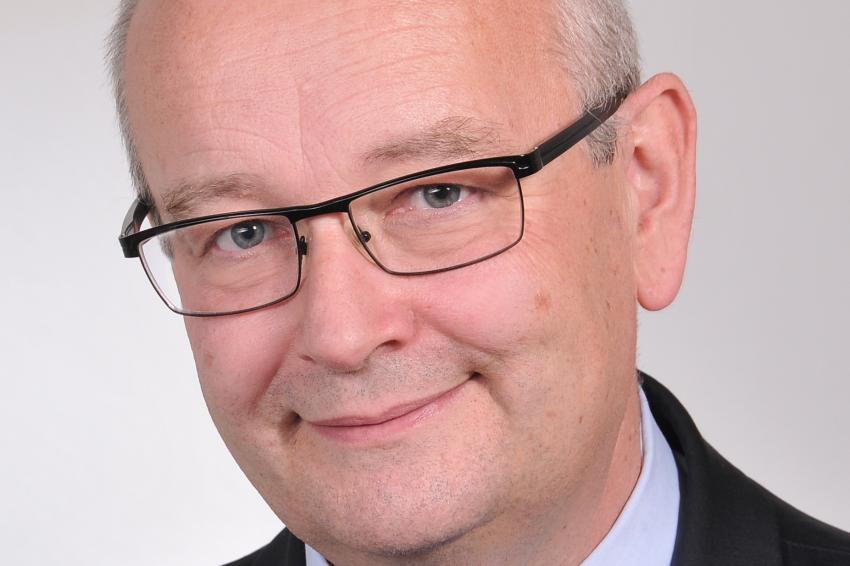Innovative Companies Have to Deal with Risks
In Times of Change the Flexibility of an Organization Will Be Part of Its Future Success
Pharma Waldhof is active in the development and commercialization of active substances, key intermediates and reagents for multiple applications in the pharmaceutical, diagnostics, cosmetics and nutraceutical industry. The German company has devoted itself for 70 years to the interesting field of nucleic acid biochemistry which started with the cultivation of yeast in the paper industry in Mannheim. During its history the company belonged also to Boehringer Mannheim, and with the acquisition by Roche became part of the Swiss pharmaceutical company, before it got acquired by Aceto Corporation in 2004. Dr. Michael Reubold asked Dr. Lukas von Hippel, managing director at Pharma Waldhof, about the company’s specific competencies and his evaluation of current and future market trends.
CHEManager: In the pharmaceutical market, the market share of biologicals and biosimilars is growing at above-average rates, and also in other sectors there is increasing relevance of biological and bio-based products and technologies. Pharma Waldhof looks back at 70 years in biochemistry business. How do you see this trend? Will biology be the key science of the 21st Century?
L. von Hippel: From my understanding, natural sciences are as well part of an evolutionary process: It started with mathematics, followed by physics. Out of physics, alchemy developed to become later chemistry. Chemistry split into various disciplines, now overlapping with various disciplines from biology. With this intra-disciplinary overlap we are now able to predict results of experiments better and are able to develop a deeper understanding how biological systems act and react. This is why the future will belong to combined scientific forces from various disciplines.
Will biology be the key science of the 21st century? Clearly not, or we would miss other disciplines like material sciences. A friend of mine who is a psychologist claims this century will be the century of psychology. However, psychological reactions can be understood being the result of biochemical processes. So disciplines may merge here as well.
It may be a good advice not to forget that one discipline depends on others, and we can learn from each other.
Will we see new break-through technologies resulting from the combination of biological and other technologies?
L. von Hippel: For sure. We see this currently already in our manufacturing processes: Production asks for engineering, analytics ask for physics, cells do need media that supports growth, and media often derives from chemistry. It would be a fault to limit thinking to the set borders of a discipline. The borders fusion, so we have to learn how to bridge and understand different disciplines.
What growth potential for your business do you see resulting from this trend?
L. von Hippel: At Pharma Waldhof we are able to support quite a lot of disciplines, market segments, and customers with products that are essential parts of every human being. This is why our products have such broad spectrum of applications. DNA, RNA, nucleotides, nucleosides, co-enzymes and co-factors are widely used materials in all kinds of applications. We believe for the time being, we may know only a part of the potential applications.
Being specialists in our business field, we can support our customers with our products or the development of new qualities for certain applications or the development of a single product for a new or given application.
We observe continuing consolidation in many industries including the pharmaceutical sector and its supplier market. Where do you see the market heading, especially since biotech and biochemistry companies have become top targets for Big Pharma?
L. von Hippel: The development of companies often follows waves: Big companies are growing, later spinning off smaller parts. Pharma Waldhof is a living example: In our history, we belonged to large organizations like Boehringer Mannheim and Roche. Now we belong to Aceto Corporation where we have a unique position in its portfolio of companies and are fairly independently managed.
From our perspective, we do strongly believe that innovation will be the driver for our future development. In our mind, innovation goes far beyond R&D. R&D is able to invent and to generate knowledge. But keep in mind, innovation is the successful commercialization of knowledge. Uber and Airbnb are examples where companies are quite successful with different and new business models, commercializing knowledge while partnering.
So the question may be what type of cooperation will at the end be most efficient for a company: through acquisitions of companies with certain know-how or by partnering in virtual networks. Most likely both ways will remain for longer.
What challenges or chances arising from this continuing consolidation do you expect for smaller companies like most CDMOs?
L. von Hippel: In Chinese, the character for chance and risk is the same. Not only today, times are changing quickly. So flexibility of an organization will be part of its future success, and long existing successful companies have always shown to be flexible. Beside flexibility, knowledge will be mandatory, but knowledge is a perishable good. So we all have to invest in keeping our knowledge up to date. This will be the challenge for the future – but this is nothing new.
The other topic may be management trends: From time to time, large organizations are forced to consolidate the number of partners in the supply chain. This may limit the chance for a small organization. However, if the products and services of a small CDMO are excellent, there are exemptions from every rule. We are proud to have quite a lot of well-known and highly reputed names in the industry being our loyal customers.
How will the market shake-up influence the innovation climate? Will it distract companies from innovation projects or will the mix-up of R&D departments spark new ideas?
L. von Hippel: Personally, I do not believe that a market shake-up will have much influence on the innovation climate, but time to market will be affected. When companies get acquired, there is a natural slow-down in innovation processes: the time integration takes will be the time missing to work on other topics.
The real challenge will be the question how to deal with risk. Innovation projects are by nature risky, so innovative companies have to deal with risks. In times where people are looking for stability and predictability, the innovation climate will be affected and the willingness to take risk is limited. The louder an organization calls for innovation, the bigger the inner resistance may be. If we accept that part of an innovation nature is limited predictability, we may have to accept as well we can hardly manage an innovation in detail. So the question may be when we will accept not everything in life is manageable and what the consequences are for our organization and our management style.
Innovation is crucial, but defining a proper innovation strategy and putting it into action is not a piece of cake. What does your innovation strategy look like and what differentiates it from other companies?
L. von Hippel: You may understand that I am not willing to open books here. However, there are some aspects I can disclose: Firstly, we are market driven. So we are only willing to develop a project if there is a demand and a customer commitment. Secondly, we do not have technical limitations. If we miss some technologies or skills internally, we will go for external partnerships. This is why we could in a project for example clone, express, and later use the standard set of technologies we typically use. This is per se not new, but we have developed a certain skillset of expertise in combining forces that at least I have not seen in my career elsewhere.
In 2017, Pharma Waldhof was awarded “Best Biochemical Products Provider Germany & Europe”. What does that label tell about your business strategy?
L. von Hippel: We have been surprised by this recognition, because we did not apply. Obviously one of our customers or friends gave us the nomination. In the next round, the community has been asked to vote, and in the result, we got the award for Germany. Three month later, after comparison of the winners in various states, we became informed, we have been the best in Europe.
We have been pleased receiving such recognition. It is an excellent recognition for all our employees who are working every day with passion to make our success happen. This recognition clearly shows that our customers do appreciate what we try to provide every day: Quality, both in products and services, an open ear for questions, the ability to develop, and our self-understanding to be a service provider, supporting our customers to be successful.






